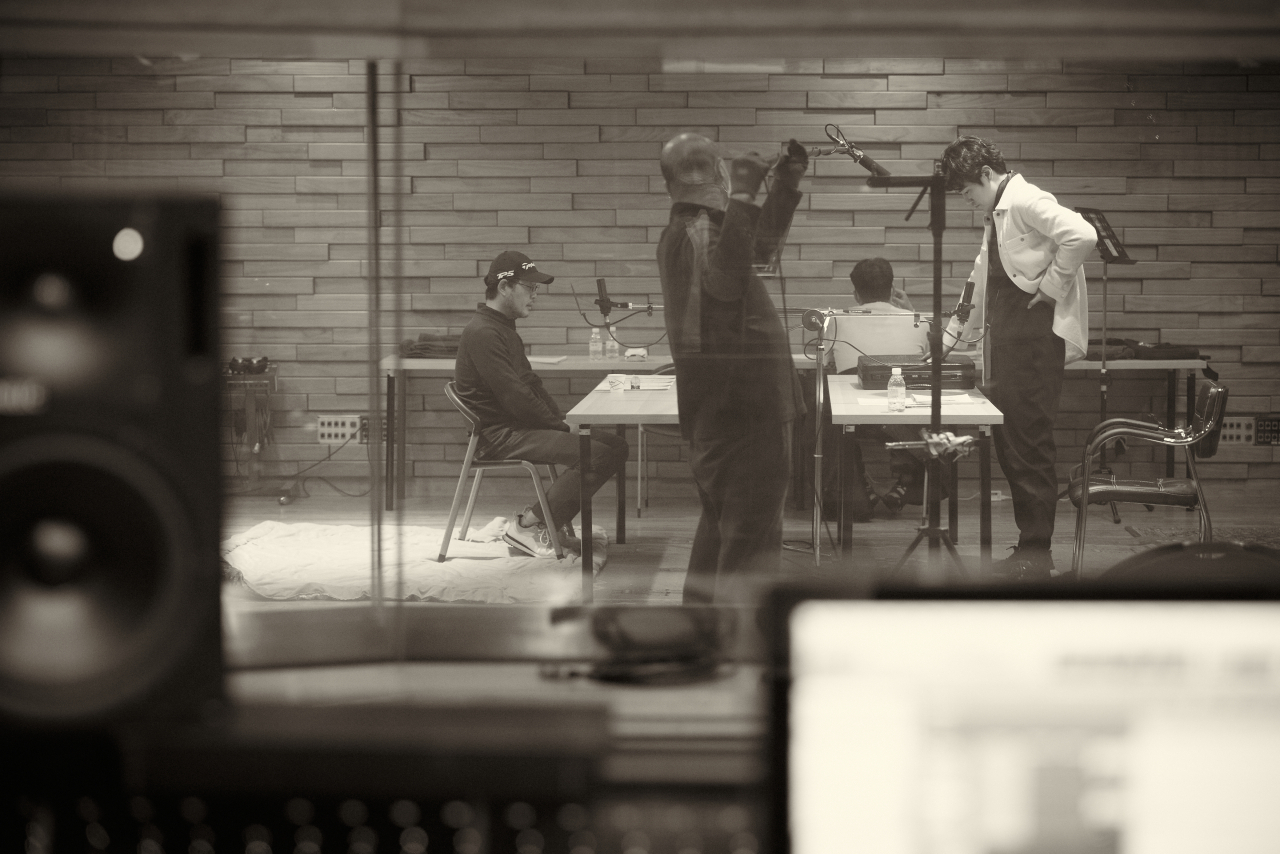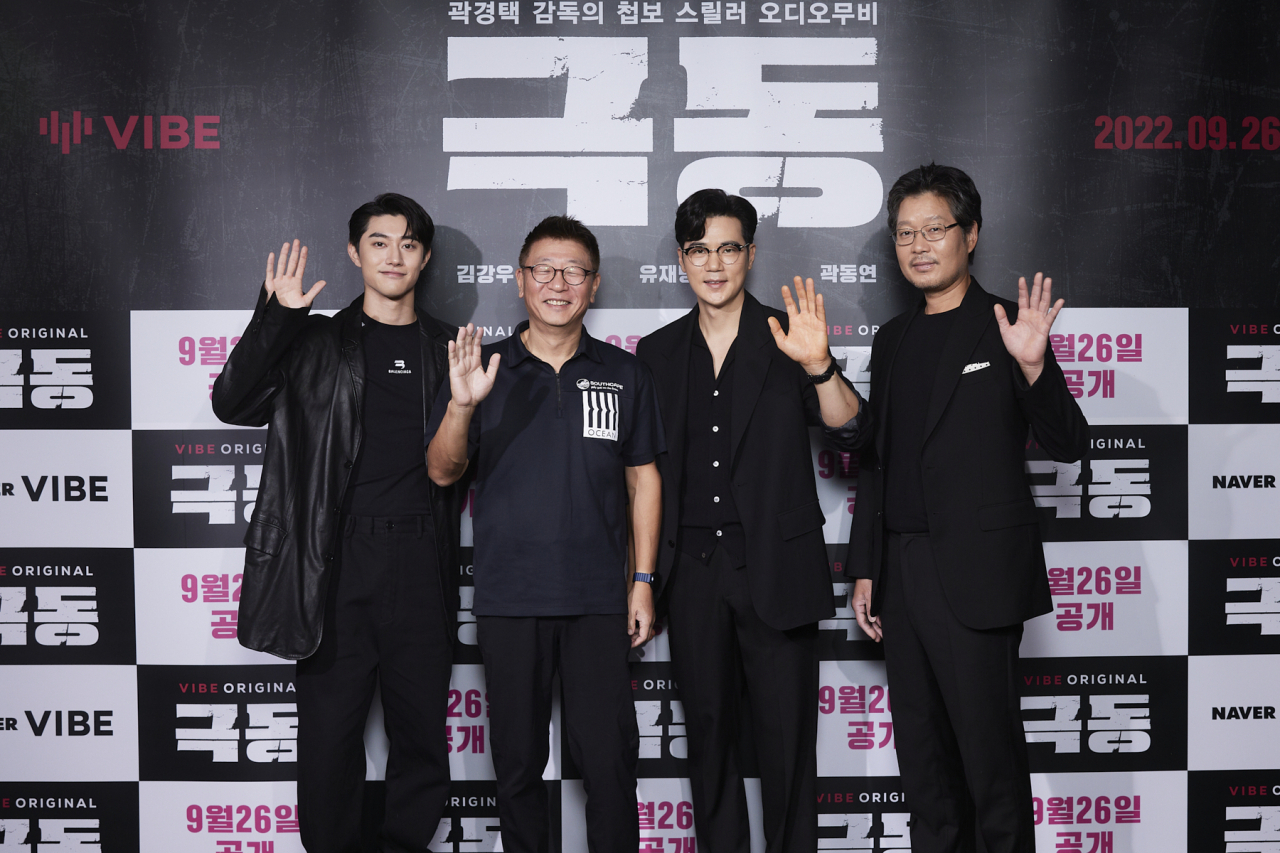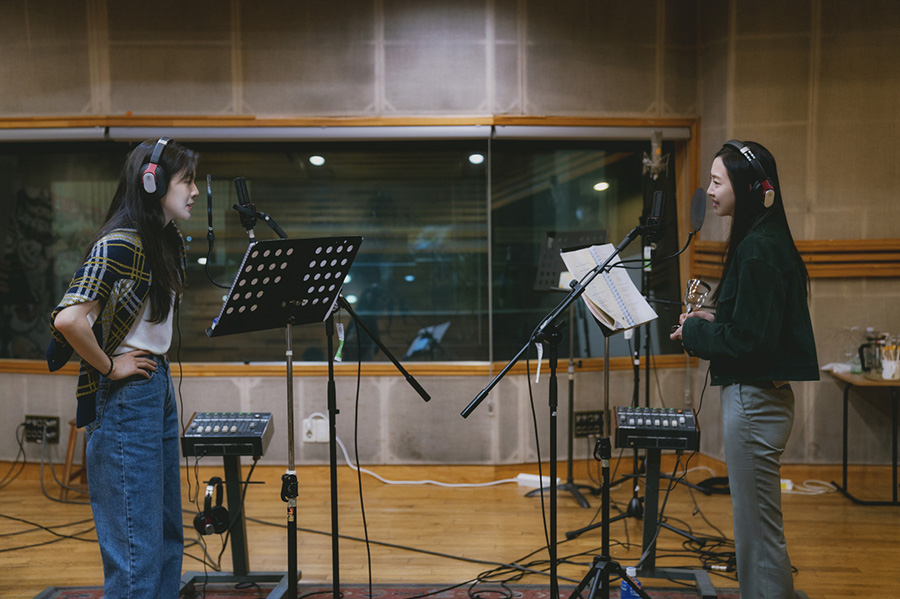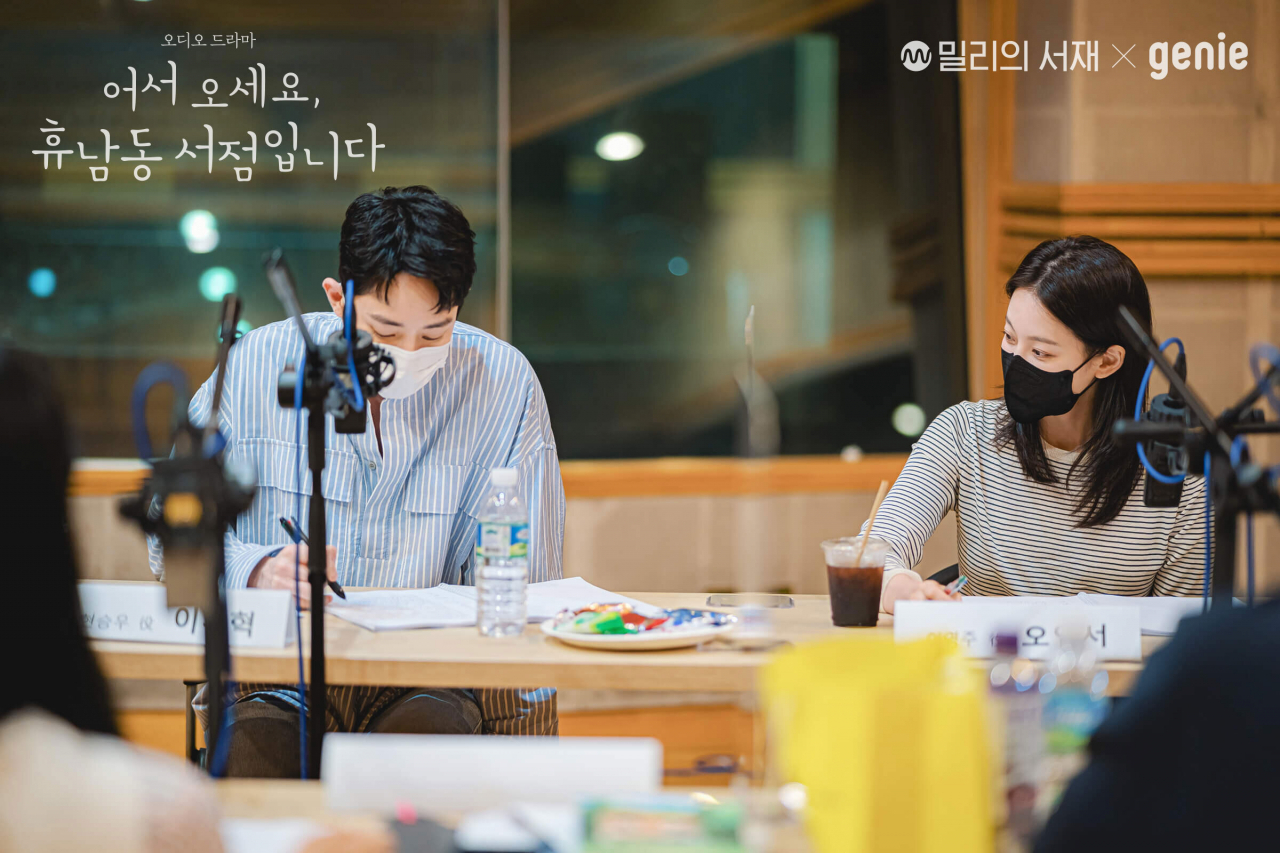[Feature] Trending: Audio dramas offer more room for imagination
With star-studded casts and immersive sounds, audio dramas are gaining a following
By Hwang Dong-heePublished : Nov. 14, 2022 - 19:01

Suspenseful music is playing in the background when a voice is heard over a walkie-talkie saying “ready to shoot.” The sound of a gun reloading is followed by quiet footsteps. Then a pop of a gun and a thump of a body falling to the ground and a window shattering. Chaos ensues with ambulance sirens blaring and cars screeching to a halt. The main character, breathing laboriously, gets into a car and drives away.
A few minutes later, an echo of an explosion and bullets flying everywhere are heard.
No, this is not a scene from some action film. It is a scene from Naver’s original audio movie “Far East.”
Listeners can see with their mind’s eye the scene that is playing out with only the sounds to help them visualize what is happening. A new form of audio content -- audio drama and film -- is fast on the rise.

Veteran filmmaker Kwak Kyung-taek of “Friend” (2001) teamed up with well-known actors Kim Kang-woo, Yoo Jae-myung and Kwak Dong-yeon for the action-packed story of a South Korean agent tracking a North Korean slush funds manager.
The espionage thriller, made available on the portal giant Naver’s music platform Vibe on Sept. 26, was played more than 1.4 million times in the first month of its release.
Since its introduction of audio film within its app in December, Vibe saw a 33 percent app download increase and a 40 percent increase in total number of users.

On Friday, Vibe will release its original audio movie “Reverse,” a thriller starring Lee Sun-bin, Lee Jun-hyuk and Dasom that revolves around a fiancee who lost her memory after a mysterious explosion. Last year, it released its first audio movie, “Floor,” also a crime thriller, starring Lee Je-hoon and Moon Chae-won.
Millie’s Library, one of Korea’s largest e-book subscription platforms, also offers audio dramas. The company’s third audio drama “Welcome to the Hyunam-dong Bookshop,” produced in collaboration with Genie Music, was released last month. The adaption of the book of the same title stars Oh Yeon-seo as a bookstore owner and Lee Soo-hyuk as a writer.
Kakao Page, a contents platform launched by Kakao Corp., which released its first audio drama series in 2020 resumed offering an audio drama series in January after a long lull. Since then, the company has made available several other audio drama series, including the romance audio drama “Painful, but Desirable” starring Lee Joon and Park Cho-rong of Apink, which was released in May.

What’s special about audio dramas?
The new breed of audio drama series currently trending is different from audiobooks or audio dramas of the past. The focus is on the word “drama,” according to Kwon Boh-youn, a professor at the graduate school of digital image and contents at Dongguk University. “The focus on drama leads to more acting with an emphasis on delivering the emotional elements,” Kwon told The Korea Herald on Nov. 7.
In a similar vein, director Kwak of “Far East” explained that he and the actors had put a lot of effort into every line to deliver details such as breathing, trembling and tension in the voice.
“When we recorded, we acted out each scene as if the microphone were a camera. In the shooting scenes, we ran, lied down, rolled on the floor and held guns,” said actor Kim of “Far East” during an online press conference on Sept. 1.
Generally, an audio drama series consists of 10 episodes, each episode running between 10 to 14 minutes, and features multiple voice actors playing different characters. Appropriate sound effects and music are added to achieve layers of audio effects that fill the visual void.
Experts say sounds with no visuals offer listeners more room for imagination.
“It is somewhat paradoxical. When you watch something, you can only see what is shown on the screen. It’s instantaneous. But when you listen, the viewers’ vivid imagination is sparked based on their previous experiences,” said Jung Duk-hyun, a pop culture critic.
“Even in a regular film, what makes a spaceship feel like it is passing by is the swooshing sound that moves from the back to the front of the theater,” he added.
To create an immersive sound experience, Naver’s Vibe uses Dolby Atmos, a spatial audio technology which allows the listeners to feel where a bullet is coming from or how fast a car is going, said a Naver official. It is the same technology that is also used in films and cinemas.
Another selling point of audio dramas and audio films is that multitasking is possible while listening -- something that appeals to the younger generation.
“Many of the reviewers said that they listened to the drama while commuting or exercising,” said Kim Min-kyung, a new content project manager at Millie’s Library. Kim oversaw two audio drama projects including “Welcome to the Hyunam-dong Bookshop.”
“The fact that you can listen to the drama while doing something else seems to meet the demands of young people who are used to multitasking,” Kim said.

Fandom-based IPs
Although original audio content is released from time to time, adaptations of popular web novels and webtoons make up the bulk of audio dramas that are available now.
Audio Clip, Naver’s audio content platform launched in 2017, and Kakao Page have been producing audio drama series featuring professional voice actors, investing in original web content and expanding their IPs.
Adaptations such as “The Remarried Empress” (2021) from Audio Clip and “Business Proposal” (2022) from Kakao Page still hold top spots in terms of subscriber numbers and number of plays.
“It’s natural for the companies to tap into the audio market. They need to grab consumers with different appeals, so a one source multi-use strategy is necessary,” said Kwon of Dongguk University.
However, while this strategy appeals to the existing fans, newcomers (to the audio market) may find it difficult to follow the storyline without any background knowledge, Kwon pointed out.
“A market needs an influx of new users to expand. … Audio content needs a new storytelling strategy of narratives that take into account users who are unfamiliar with the original storyline,” explained Kwon. Such strategy would involve writing and producing that are specifically geared toward the audio drama form.

On a positive note, companies and critics predict continued growth of the audio content market.
The size of the domestic audio content market including audiobooks is estimated at 25.6 billion won ($18.6 million) in 2019 and is expected to grow to 111 billion won in 2024, according to Statista, a German-based market and consumer data company. The size of the global audio content market is also expected to reach $75.3 billion in 2030, according to Goldman Sachs.
Outside Korea, audio dramas have been thriving in the past decade on Apple and Google as part of their podcast offerings as well as on audio platforms such as Spotify and BBC radio channels.
“One strength of audio technology is that it can respond flexibly to future platforms such as wearable devices, connected cars, and artificial intelligence. Audio content is easy to integrate with other technologies,” said Lee Yung-hee, a culture critic.
For example, eight out of 19 voices from “Welcome to the Hyunam-dong Bookshop” are created with artificial intelligence, according to Millie’s Library.
Lee also said audio content has the power to appeal to people of all ages, not just 20- or 30-somethings.
“Right now, young adults are the main target for audio drama and movies, but that does not mean the older generation doesn’t listen to audio content. With the right genre and right narratives, an audio drama has a lot of power to speak to a much wider audience,” Lee said.









![[Kim Seong-kon] Democracy and the future of South Korea](http://res.heraldm.com/phpwas/restmb_idxmake.php?idx=644&simg=/content/image/2024/04/16/20240416050802_0.jpg&u=)








![[KH Explains] Hyundai's full hybrid edge to pay off amid slow transition to pure EVs](http://res.heraldm.com/phpwas/restmb_idxmake.php?idx=652&simg=/content/image/2024/04/18/20240418050645_0.jpg&u=20240418181020)

![[Today’s K-pop] Zico drops snippet of collaboration with Jennie](http://res.heraldm.com/phpwas/restmb_idxmake.php?idx=642&simg=/content/image/2024/04/18/20240418050702_0.jpg&u=)